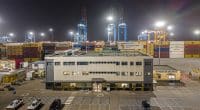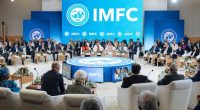Energy efficiency and the circular economy are at the heart of the new strategy of Moroccan company Neo Denim, which has just received European funding for greener fashion.
A new page is turning for fashion in Morocco. After proving its worth in classic fashion, the young company Neo Denim is launching a line of clothing that is essentially eco-responsible. The aim is to help protect the environment, in particular through the rational use of resources (water, electricity) at its factory in Tangiers. This ambition will be achieved with new machinery installed thanks to support from the European Bank for Reconstruction and Development (EBRD).
“From now on, we will be able to dye and dry the clothes we make, while reducing the quantity of chemicals and waste. This will benefit both its employees and its customers”, says the London-based institution. The EBRD’s investment is part of the Green Value Chain (GVC) programme being implemented in the Kingdom of Morocco. It is jointly funded by the Republic of Korea, the European Union (EU) and the Green Climate Fund (GCF).
Promoting the circular economy
Together, the development partners intend to encourage Moroccan manufacturers to take sustainable development into account in their value chains, particularly in the textile sector. Elsewhere, as is the case in Ghana, the transition to greener fashion is no longer an issue, but a necessity. In this West African country, where the second-hand clothing trade generates 160 tonnes of waste every day, the time has come for a circular economy.
Read also-AFRICA: AfDB Launches 2nd Sustainable and Circular Fashion Competition
To remedy this situation and combat the water pollution that is one of the direct consequences of this industry, a $15 million partnership between the Chinese fast-fashion brand Shein and the Or foundation is underway until 2025. As well as reducing health and environmental risks, it should enable Ghanaians to try out recycled and inexpensive clothing styles.
Benoit-Ivan Wansi




